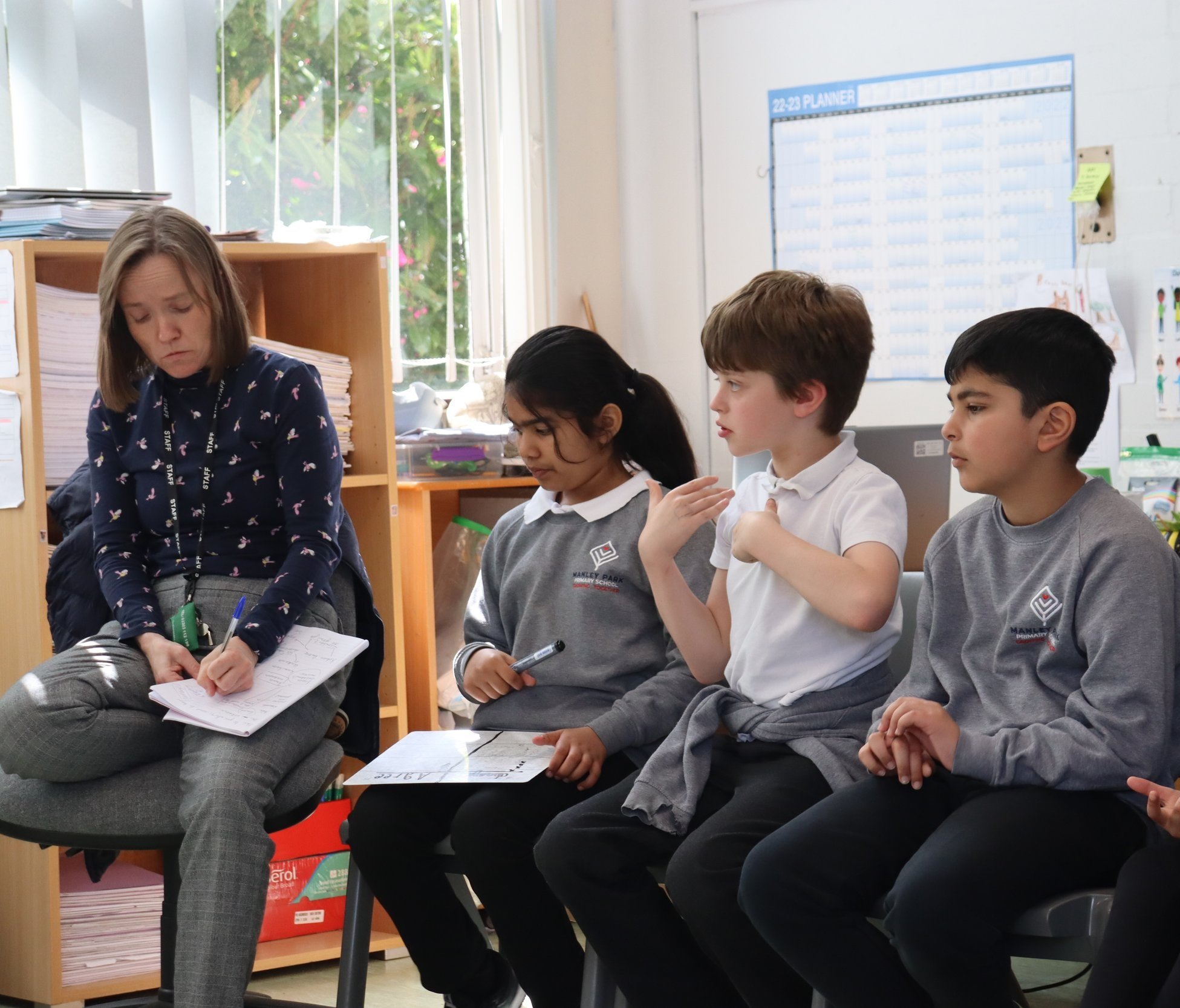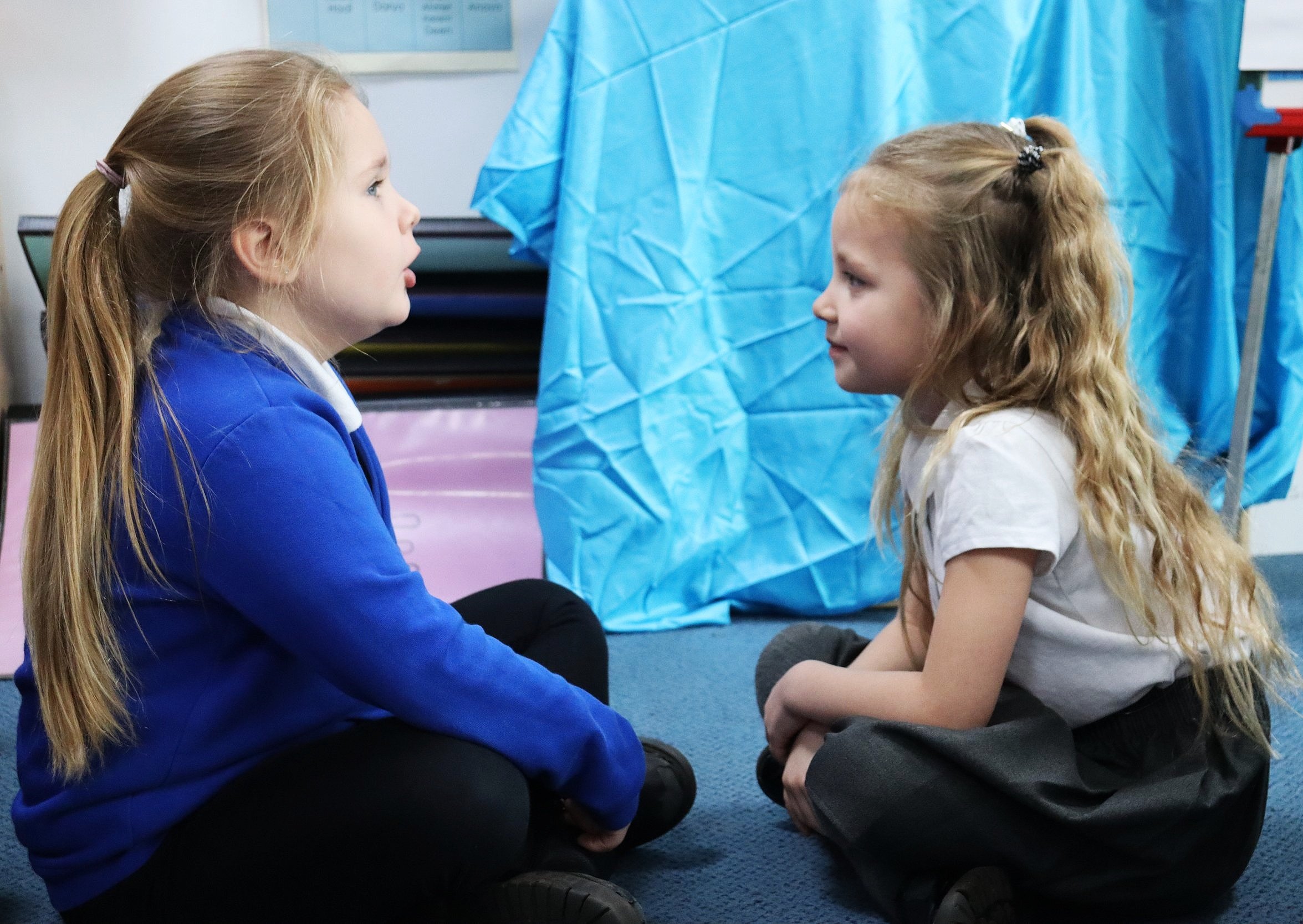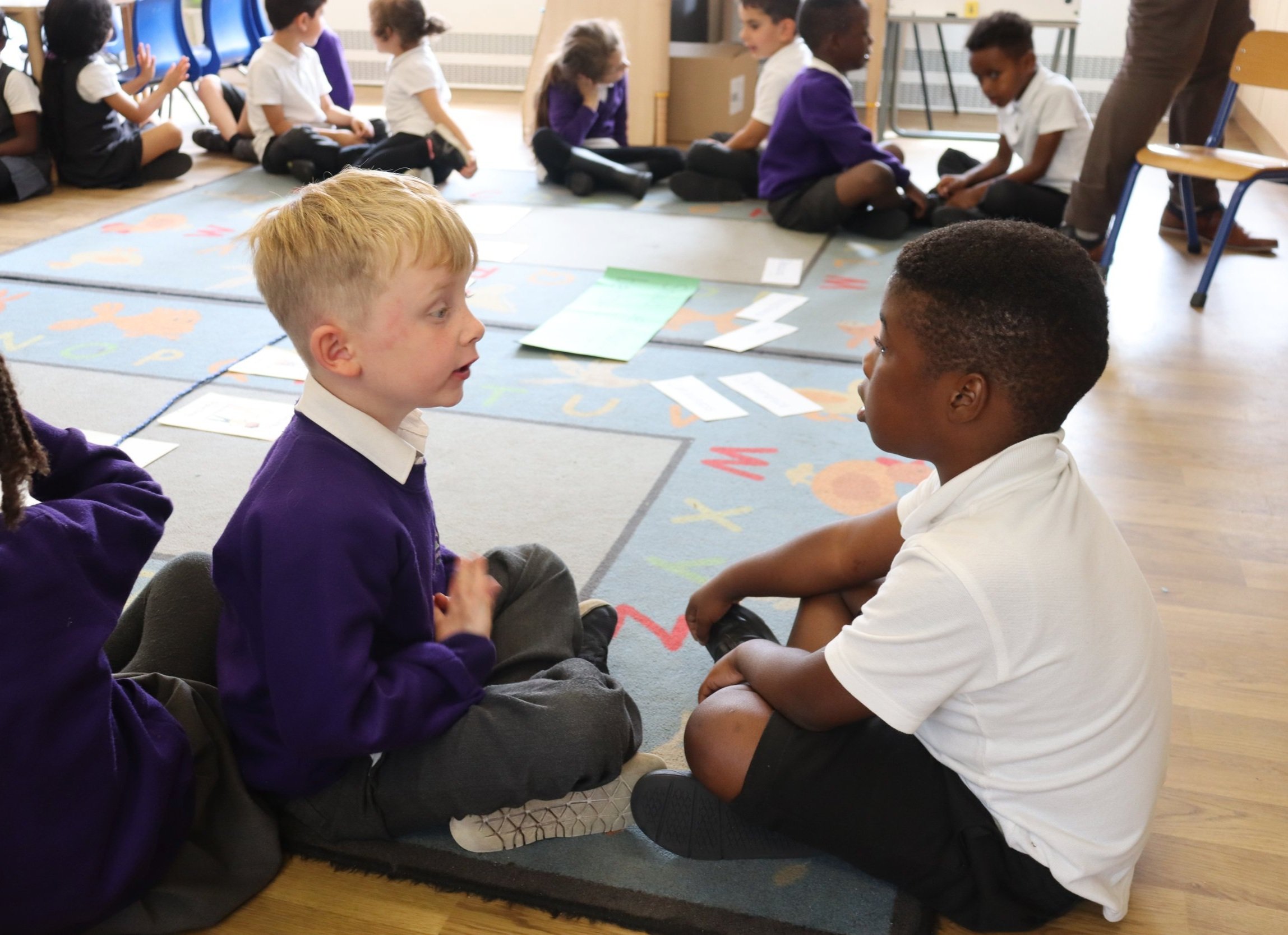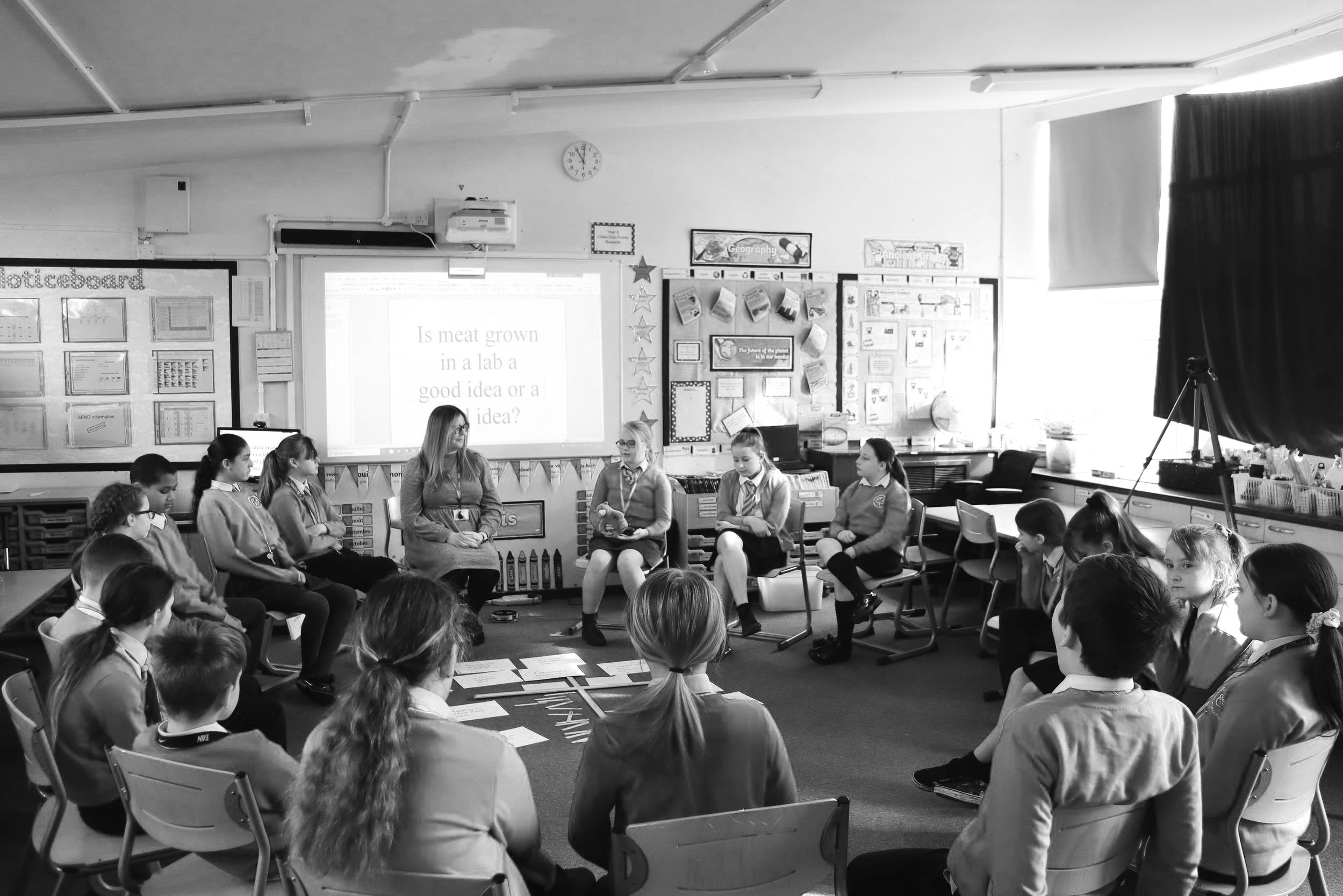I recently interviewed my Philosophy for Children colleague, Vanessa Dewey:

What is the impact of P4C on your pupils?
They feel their voices are heard and their ideas are valued.
They get a space where they do most of the talking, which they cherish very much.
They have learned how to express themselves better in all areas of learning, and take the time to think about building good reasons.
They have become more creative in their thinking and are more tolerant of others' viewpoints.
What are your top five P4C tips for other teachers?
Put most of your focus on the dialogue skills. Five minutes here, ten minutes there. Make sure your students are engaging in dialogue with each other at least some part of the day.
Build community early in the year. Being in a circle is important for engagement and unity.
Every child should have a "Thinking Partner" and students should use them often. Lots of training and routine building for "quick turning" helps a lot.
Let the children make decisions. They are always more engaged and personally invested when they get to make decisions and take ownership. Which of these two questions interests you the most? How should we vote?
Be flexible. Sometimes something philosophically-promising will come out at the most random times. Take those opportunities and run with it.
Vanessa recommends
“Think Tanglers” cards www.creativetogether.ie/think-tanglers-p4c-resources-cards-for-children
Thinking Moves A-Z https://dialogueworks.co.uk/thinking-moves/
Vanessa is a teacher in Shanghai. She has been practising P4C for ten years.
The importance of positive, transparent systems for deciding who responds
I highly recommend this podcast to anyone with an interest in oracy education
Let’s start talking about the impact screen time might be having on language development
It’s great that they are motivated to speak next, but are they really listening?
Show your pupils that you are trying to understand their thinking
Does it matter if UK children use words and accents from the USA?
Children need time to practise the skill of question-generating
Pupils tell us why they think their peers don’t raise their hands





























